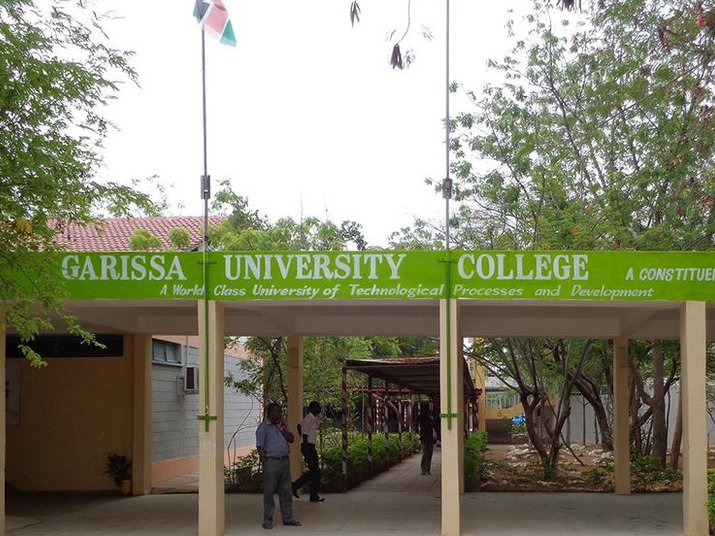Garissa University Launches Events To Curb Radicalization On Their Anniversary- On a day like this last year, it was not a normal class business at the forsaken university, the varsity lost 148 dear lives of young students to a militia terror group operating from Somalia.

The 2nd April 2015 has gone to the varsity’s record of history for the worst reason they have never imagined or thought of.
The attack was termed as one of the worst attacks that saw ragtag terror group storm the institution and massacre the students after engaging Kenyan security forces in an eight-hour siege.
According to Abdiaziz Mohamed of African Talent and Change Foundation, a founder member, the organizers have lined up a marathon to help explore talents among idle youth who are being radicalized into joining terror groups.
“This is a platform to promote peaceful co-existence among Kenyans for the purpose of cohesion and integration,” he said in Garissa town.
Garissa University Principal Professor Ahmed Warfa said this will be the first marathon of this magnitude to remember the fallen heroes. “This is a day engraved in our history and it’s a day we will never forget,” Warfa said.
The principal said a series of other activities among them dances, drama are lined up .
The Garissa massacre is the biggest ever to have occurred on Kenyan soil since Kenya took its troops to Somalia to subdue Al-Shabaab militants blamed for sporadic armed attacks in the country.
Since its reopening in January hundreds of students have registered for various courses in the institution with the number still surging, according to the college officials.
So far, 139 new students had registered in January while 60 previous privately sponsored students had also started their classes in the same month.
Security agencies have intensified border patrols to deter infiltration of the militants into the country at a time of increased threats by the terrorists’ network and homegrown terror cells.
The government has already started construction of proposed wall between Kenya and Somalia in Kiunga, Lamu County to address the heavily porous unmanned borders believed to be easy route for terrorists to sneak into the country.
By Simon Ingari













